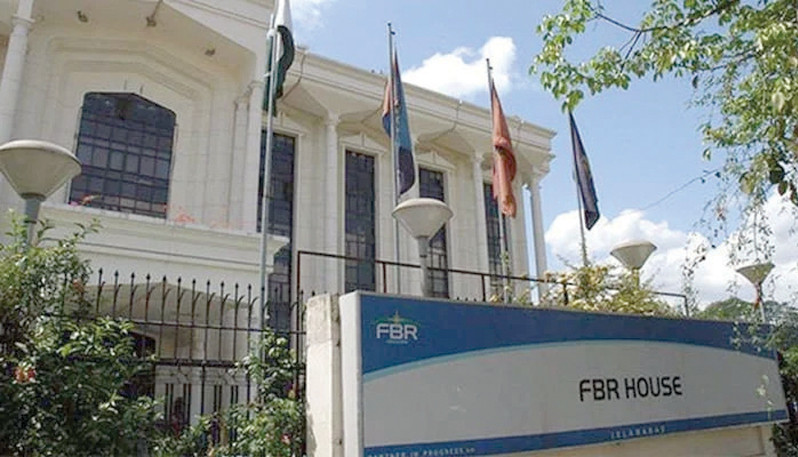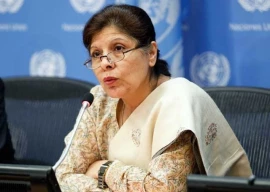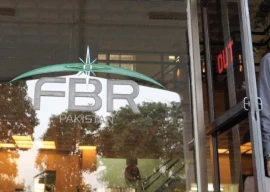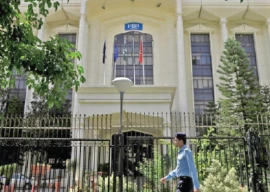
The federal cabinet, under the leadership of Prime Minister Anwaarul Haq Kakar, on Tuesday deferred the approval of the restructuring plan for the Federal Board of Revenue (FBR) due to questions regarding the mandate of the caretaker government and the perceived complexity of the proposed scheme.
A sub-committee, headed by the finance minister, has been formed to review the restructuring plan and suggest further changes in line with the country’s existing governance structure and feedback from federal ministers. Sources say, PM Kakar acknowledged the efforts of the finance minister but said her plan needed additional clarity before it is approval.
According to a statement from the PM Office, “The PM directed to establish an inter-ministerial committee under the supervision of the finance minister in the light of the opinions of the cabinet members regarding the proposals presented regarding the FBR reforms.”
The committee will include federal ministers for privatisation, foreign affairs, commerce, energy, law and justice, and information technology. Their recommendations on the proposed reforms are expected to be presented in the next federal cabinet meeting, scheduled for January 30, it added.
The cabinet underscored the need for introducing reforms in the FBR, and to also to empower the marginalised Customs Group. It was revealed that, compared to the current 8.5% tax-to-GDP ratio, the country’s tax potential is estimated to be 22%, equivalent to roughly Rs23 trillion. There is a gap of approximately Rs14 trillion compared to what the FBR is currently collecting.
Read Senate opposes FBR overhaul before elections
Despite the potential, the restructuring plan did not outline a roadmap to tap into the true tax potential of the country.
Serious observations were raised by the privatisation minister regarding the disconnect between the proposed plan and the country’s existing governance structure. Additionally, Law Minister Ahmad expressed concerns about the legal mandate of the interim setup. Both ministers, along with others, have been included in the new committee tasked with refining the restructuring plan.
At one point, the cabinet discussed approving the plan in principle and leaving its implementation to the next government. However, due to differing views among cabinet members, it was decided to further fine-tune the plan before seeking the cabinet’s endorsement.
The idea is that the caretaker government will finalise the restructuring plan, but its implementation might be deferred to the next elected government, as per a participant in the cabinet meeting. The law minister opined that Section 230 of the Election Act does not grant such vast powers to the caretaker government for a complete overhaul of the tax machinery.
Given the law minister’s opinion, it is unlikely that the interim government will promulgate a Presidential Ordinance to implement the restructuring plan, even if it gains approval in the next meeting.
After mediation by the military establishment last week, Chairman FBR Malik Amjad Zubair Tiwana and Finance Minister Dr Shamshad Akhtar reached a compromise, leading Tiwana to submit a summary for cabinet approval.
The proposed plan sought the abolition of the FBR and the establishment of two new organisations; the Federal Customs Board and the Federal Inland Revenue Board. It also proposed the creation of a Tax Policy Board, a Custom Oversight Board, and an Inland Revenue Oversight Board. However, the cabinet did not approve this structure.
Read Finance minister, IRS at stalemate over FBR overhaul
Sources said the privatisation minister argued that the existing governance structure does not allow for the establishment of such oversight boards.
The finance minister withdrew her demand for the appointment of independent heads for the oversight boards of the Federal Customs Board and the Federal Inland Revenue Board. She also agreed that the FCB and FIRB be attached departments of the Revenue Division, contrary to her earlier proposal that both organisations report to the oversight boards. However, the cabinet did not approve this structure.
Currently, the Customs Group collects about 40% of total taxes, with the remaining 60% collected by the Inland Revenue. A year ago, the Customs’ share was 54% when imports were unrestricted.
The Special Investment Facilitation Council had approved the FBR restructuring on January 3rd, directing its implementation within one month. However, divergent views between the chairman FBR and finance minister delayed the submission of the summary.
Sources said some cabinet ministers objected to the creation of the three new boards, considering that it would further complicate the governance structure.
The revised proposal suggests the establishment of a Federal Policy Board, chaired by the finance minister, with the Revenue Division Secretary also serving as the Secretary to the Policy Board.
The finance minister proposed that existing services be headed by director generals appointed by the federal government for a fixed term. The position of the chairman FBR would cease to exist, and both new director generals would enjoy administrative, financial, and operational autonomy with power over their respective budgets.
Some cabinet members objected to appointing the secretary of the Revenue Division from either the Inland Revenue Service or the Customs Group.
The Revenue Division would wield significant powers, including matters related to international taxes, valuation of goods and assets, information technology, digitisation, and policies related to data exchange between the new organisations. Concerns were raised by Customs about the Revenue Division’s control over integrity and human resource management functions.
Published in The Express Tribune, January 24th, 2024.
Like Business on Facebook, follow @TribuneBiz on Twitter to stay informed and join in the conversation.


1732184775-0/BeFunky-collage-(80)1732184775-0-165x106.webp)

1731933289-0/BeFunky-collage-(68)1731933289-0-165x106.webp)

















COMMENTS (1)
Comments are moderated and generally will be posted if they are on-topic and not abusive.
For more information, please see our Comments FAQ